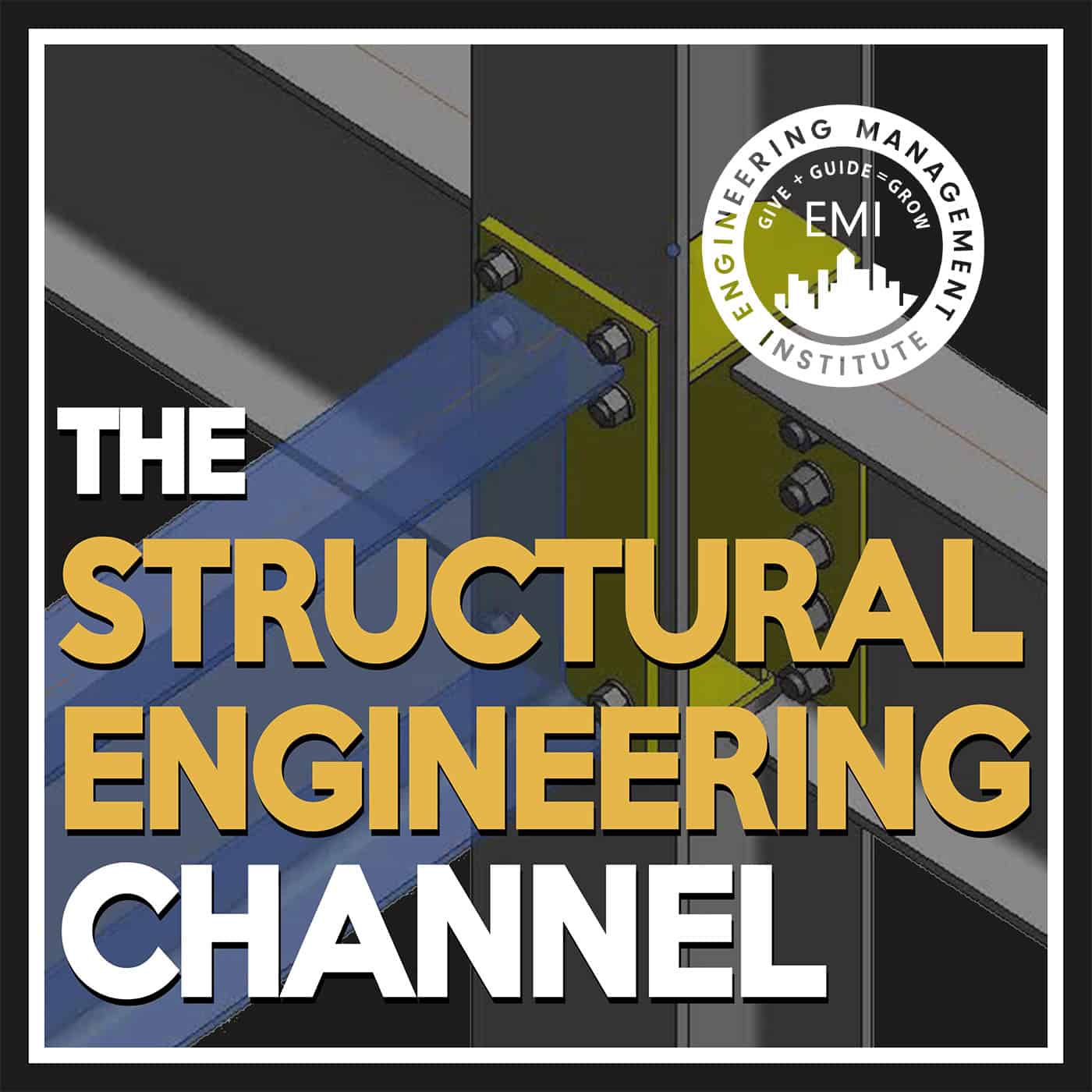TSEC 135: The Best Practices for Hiring Structural Engineers
Description
In this episode, we talk with Tyler Wiggins, operations manager, engineering recruiter, and owner of Agavos Group, LLC., about game-changing strategies to build an exceptional team when hiring structural engineers. We explore the hiring challenges faced by structural engineering firms, the root causes of the engineering labor shortage, and powerful tactics to boost retention and reduce attrition.
***The video version of this episode can be viewed here.***
Engineering Quotes:
Here Are Some of the Questions We Ask Tyler:
Can you tell us about your journey from engineering manager to engineering recruiter?
Given your experience, why do you think structural engineering firms are struggling to hire engineers right now?
When working with engineers to place them at a firm, what are some common questions they typically have?
Are you finding that more engineers are asking for flexible schedules, work-from-home options, or even part-time work these days, and what trends are you seeing in that area?
When engineers consider a job change, how do you advise them on the appropriate salary increase to make the move worthwhile?
What do you think companies could do better to retain their engineers and minimize turnover?
What advice do you give companies looking to hire structural engineers in today's competitive market?
Here Are Some of the Key Points Discussed About the Best Practices for Hiring Structural Engineers:
Learn how to transition from an engineering manager to an engineering recruiter by leveraging skills gained at previous roles. Use your engineering background and industry connections to become a trusted recruiter for hard-to-fill positions in structural and forensic engineering.
Structural engineers are hard to hire due to a labor shortage. The main factors include population decline, impacts from the recession, an insufficient pipeline of new engineers, and low pay combined with overwork.
Engineers face a traditional profession that often lacks flexibility, making it hard to attract and retain young talent. Engineers need to ask for what they want, and companies should be more adaptable to individual needs to improve retention.
Many engineers now seek hybrid or flexible work schedules rather than being in the office full-time. There is also a growing trend of engineers asking for part-time positions to better balance their work and personal lives.
Engineers often face challenges in career advancement due to unclear timelines and market fluctuations. Companies need to clearly communicate growth opportunities and revenue goals to retain talent and avoid losing them to competitors.
Companies can reduce employee turnover by offering competitive pay and avoiding overworking their staff. Providing clear career advancement opportunities and maintaining open communication about individual needs can also significantly improve retention.
Companies looking to hire structural engineers in today's competitive market should offer higher pay and flexible work options. Emphasizing a positive work culture, reasonable hours, and attractive benefits can help attract and retain top talent.
More Details in This Episode…
About Tyler Wiggins
Tyler Wiggins is a former engineering manager turned engineering recruiter with over seven years of experience in recruiting and hiring engineers for structural engineering firms, solar developers, and solar equipment manufacturing companies. He graduated from Cal Poly San Luis Obispo with a Bachelor of Science in Materials Engineering and began his career as a product development engineer for a solar mounting equipment manufacturer. Tyler advanced to an engineering management position, where he expanded the team from three to an international team of 12 engine...
More Episodes
In this episode, we talk with Ryan Jeansonne, P.E., civil structural engineer at Titan Delta, who shares powerful insights on mentorship and continuous learning in engineering, inspiring both new and seasoned professionals to take bold, impactful steps in their careers.
***The video version of...
Published 11/14/24
Published 11/14/24
In this episode, we speak with Farshad Mirshafiei, Ph.D., P.Eng., CEO and co-founder of Sensequake, about how advanced technologies are transforming structural assessments and redefining safety and infrastructure resilience in buildings and critical systems.
***The video version of this...
Published 10/31/24


